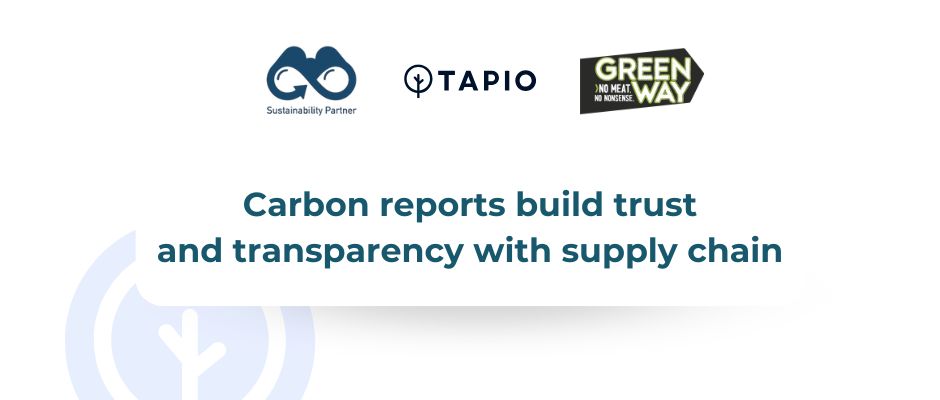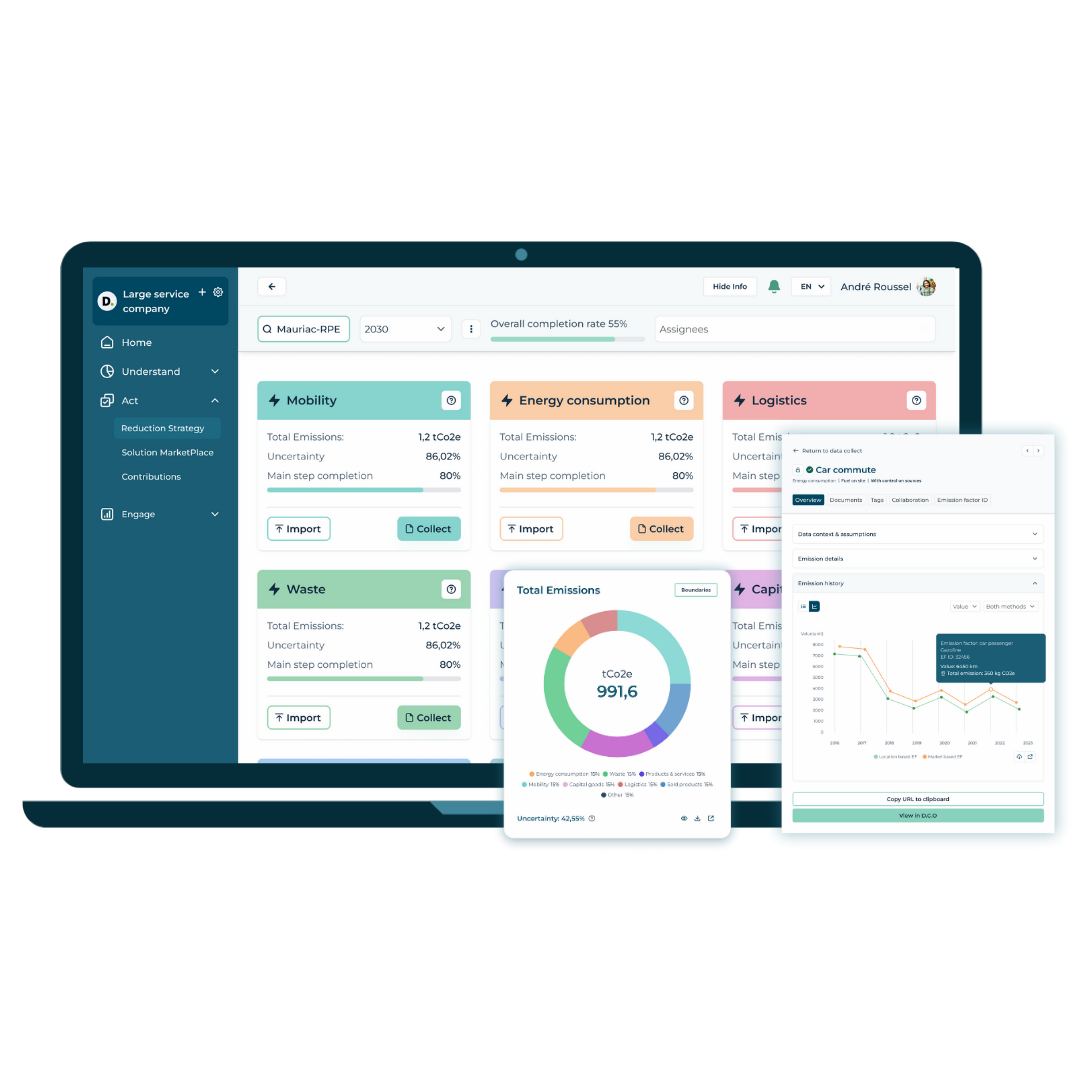“Carbon report builds trust and transparency in the supply chain.”
Greenway calculates its carbon footprint to strengthen its relationship with its supply chain.
Reading time: 3 minutes
Reading time: 3 minutes

Since the CSRD’s Omnibus simplification package, many companies have wondered what to do next. With fewer reporting obligations, should they still invest in their sustainability strategy?
Greenway’s recent project clearly answers that: yes. Even when you’re not directly affected by regulation, carbon reporting is a strategic move that strengthens your position in the supply chain while helping you stay competitive in a changing market.
Greenway is a Belgian company with over 25 years of experience. Founded in 1998 by Paul Florizoone, Greenway has grown from a single vegetarian restaurant in Ghent to a trusted supplier of vegetal meat alternatives for major retailers like Delhaize, Colruyt, Carrefour and Okay, as well as kitchens in restaurants, hospitals, and festivals.
Greenway partnered with Sustainability Partner, a climate consultancy, to better understand and reduce their impact and used Tapio’s carbon management platform to guide the process.
Here’s how it worked:
Greenway has always positioned itself as a sustainable company—starting with its core mission to offer plant-based meat alternatives. Their products are locally sourced and produced in Belgium.
However, Greenway also knows that today, sustainability claims must be backed up with data to avoid greenwashing and build trust in its supply chain.
Their carbon report allows them to share transparent, verified data with clients and partners.

Greenway’s clients include some of the biggest retailers in Belgium. These companies are required to report under the CSRD. While suppliers like Greenway aren’t (yet) legally obligated to provide emissions data, being able to do so puts them a step ahead.
This year, Delhaize asked Greenway to share details about its carbon footprint. It wasn’t mandatory—but it made one thing clear: expectations are rising.

“For small and medium-sized companies, especially those supplying a few large clients, not having environmental data means not being competitive.”
– Jan Delmotte, Co-Founder of Sustainability Partner
This case shows how Scope 3 emissions—those from the value chain—are becoming a shared priority across businesses, big and small.
Greenway, for instance, is part of Delhaize’s Scope 3 emissions. By calculating their footprint, they helped Delhaize improve their reporting.
Meanwhile, Greenway’s own Scope 3 emissions are mostly linked to production. Following recommendations from Sustainability Partners, they opened a dialogue with their production partners, inviting them to calculate their emissions and explore ways to reduce them.
Cedric Hanet, Co-CEO of Greenway, states: “Compared to other clients, we’re a medium-sized customer for our production partners. But they’re hearing the same requests from others, too. We believe this collective pressure will push the supply chain to act.”
Sustainability can feel overwhelming—especially for businesses without a dedicated team. Tapio’s platform is designed to support exactly that kind of company. It helps structure the reporting process, makes collaboration easy, and keeps everything in one place.
As Cedric Hanet puts it: “Tapio is an easy-to-use tool, ideal for companies that don’t have lots of time to dedicate to sustainability reporting. It also provides tools to communicate easily.”

Tapio is a carbon management software that allows companies and consultants to calculate and reduce carbon emissions.